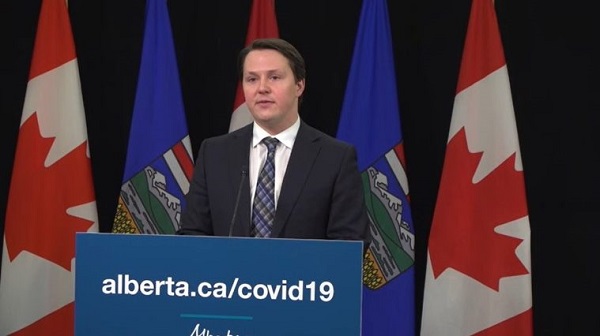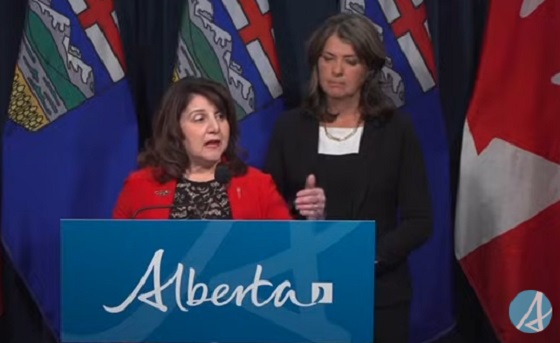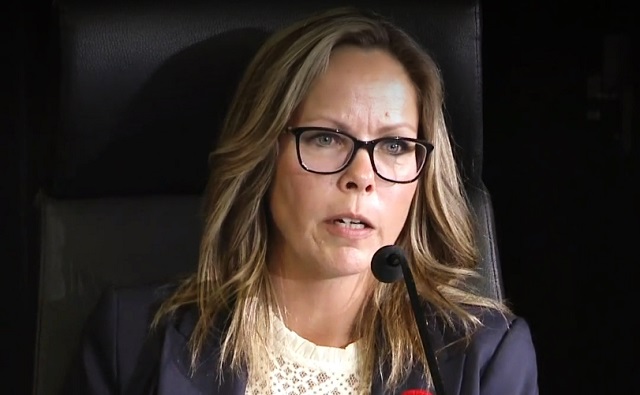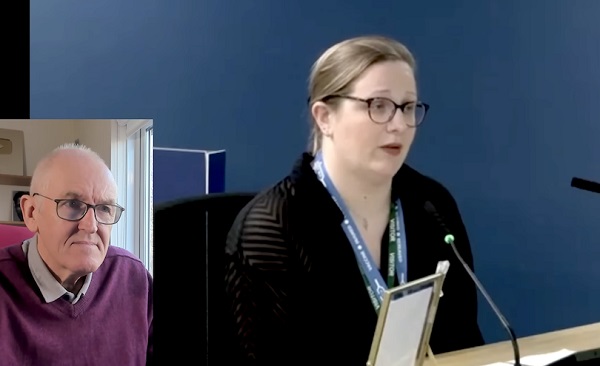National
Explosive New RCMP Transcript Renews Spotlight on Trudeau, Butts, Telford—Powers Behind Mark Carney’s Leadership Bid

 Sam Cooper
Sam Cooper
Wilson-Raybould asked by RCMP: ‘Did you advise Mr. BUTTS at one point that all this interference could amount at one point to an unlawful act?”
Despite controversial redactions that, according to a transparency advocate, may be inappropriately shielding Justin Trudeau’s inner circle from obstruction of justice accusations, newly released Royal Canadian Mounted Police transcripts provide unprecedented insight into the intense pressure campaign aimed at Jody Wilson-Raybould’s office to obstruct the prosecution of a major Quebec corporation closely tied to Trudeau’s government, his Montreal riding, and the Liberal Party’s re-election hopes.
These newly revealed RCMP interview records, though more than four years old, cast a fresh spotlight on Trudeau’s senior aides—several of whom, including Trudeau’s close friend Gerald Butts, have reportedly thrown their weight behind Mark Carney, the Liberal leadership frontrunner who appears poised to succeed Trudeau.
In a stunning revelation, RCMP records indicate that Wilson-Raybould warned Trudeau’s then-Principal Secretary, Gerald Butts, about her concerns regarding the unlawful nature of the pressure campaign.

As previously reported by The Bureau, Duff Conacher, co-founder of Democracy Watch—which obtained the records—commented:
“The Prime Minister and Cabinet officials pressuring the Attorney General to obstruct a prosecution is a situation that has not been publicly revealed before. Given that no past court ruling makes it clear the RCMP could not win a prosecution, a fully independent special prosecutor should have been appointed to pursue a search warrant for secret Cabinet communications.”
Documents obtained through access-to-information requests from Democracy Watch detail how Jessica Prince, Chief of Staff to then-Attorney General Wilson-Raybould, faced repeated, coordinated, and escalating demands from senior Trudeau officials to persuade Wilson-Raybould to override her prosecutors’ decision and cut SNC-Lavalin a deal.
What began as a single call from Finance Minister Bill Morneau’s office in August 2018 spiraled into months of pressure, involving some of the most powerful figures in Trudeau’s inner circle, including:
- Ben Chin, Chief of Staff to Finance Minister Bill Morneau
- Elder Marques & Mathieu Bouchard, Senior Advisors in the Prime Minister’s Office
- Gerald Butts, Trudeau’s Principal Secretary
- Katie Telford, Trudeau’s Chief of Staff
- Michael Wernick, Clerk of the Privy Council
SNC-Lavalin, one of Quebec’s largest engineering and construction firms, was charged in 2015 with fraud and corruption over alleged bribes to Libyan officials. In 2018, the Director of Public Prosecutions refused to offer SNC-Lavalin a Deferred Prosecution Agreement, prompting intense lobbying efforts by senior Trudeau officials.
Prince was first approached by Ben Chin in mid-August 2018.
“The case wasn’t on my radar at all,” Prince told an RCMP investigator. “The Public Prosecution Service is independent and handles tons of cases. We weren’t on top of all of them because the Department of Justice has about 45,000 pieces of litigation of its own. This was not high on my list of priorities.”
She recalled the abruptness of Chin’s outreach.
“He had clearly been speaking—I don’t know to whom—but to somebody at SNC-Lavalin, presumably someone quite high up, and was asking questions about the status of their prosecution.”
Prince described Chin as relentless, continuing to press her even as she tried to deflect.
“Francois was acting as Chief of Staff in my absence, so whenever people were trying to get a hold of me, I’d push them off to Francois. But Ben wouldn’t take no for an answer. He was like, ‘No, I really need to speak to you; I can’t speak to Francois.’”
Despite Prince’s repeated explanations about prosecutorial independence, Chin kept pushing. At one point, he insisted there had to be “a middle ground”—a compromise that would spare SNC-Lavalin from a criminal conviction.
Prince stood firm:
“There is no middle ground on prosecutorial independence, Ben. Like, you can’t. There’s not. It’s independent, you can’t, you can’t touch it.”
The next day, Bill Morneau’s office followed up, this time through Deputy Chief of Staff Justin To, whom Prince described as “Ben’s number two” and a former Prime Minister’s Office staffer.
One of the most explosive allegations from Jessica Prince’s RCMP interview involves her accusations of interference to Mathieu Bouchard, a Senior Advisor in the Prime Minister’s Office.
In October 2018, Prince received a call from Bouchard regarding a note prepared by the Deputy Attorney General. The note examined the relationship between the Attorney General and the Public Prosecution Service of Canada and included a controversial option: obtaining an external legal opinion on whether the Director of Public Prosecutions’ decision to deny SNC-Lavalin a Deferred Prosecution Agreement was appropriate.
Prince described Bouchard as persistent, pressing for ways to circumvent the Director of Public Prosecutions’ decision.
During the call, Prince accused Bouchard of interference:
“Look, Mathieu, this is… this is interference, right? Like this is, uh, to say we’re getting an external legal opinion, like, to what end, right? Like, if we think that the Director is exercising her discretion appropriately, why are we getting an external legal opinion, right?”
She pushed back on the implications of his request. Bouchard responded by tying the decision to the political stakes in Quebec, warning that SNC-Lavalin could pull its headquarters from the province.
“He said, ‘You know, Jess, we could have the best policy in the world, but if we… we have to get re-elected, right?’”
According to Prince, the intensity of pressure culminated in a meeting with Katie Telford and Gerry Butts on December 17, 2018. Prince emphasized how extraordinary the meeting was, saying, ‘It was incredibly rare that I would even have a phone call with Gerry or Katie, let alone be summoned to their office. So, I knew it wasn’t good.’ She noted how ‘the Chief of Staff of the Prime Minister is like, effectively the boss to all the chiefs of staff of the ministers’ offices.’
 Katie Telford
Katie TelfordAfter the meeting, Prince took detailed handwritten notes and sent a text to the Minister, Jody Wilson-Raybould, informing her of everything that had happened.
In her own subsequent interview with RCMP, according to the records, Wilson-Raybould was asked: “We’re in December now, so there’s quite a bit of meetings that took place before that. Did you advise Mr. Butts at one point that all this interference could amount at one point to an unlawful act?”
“I met Gerry at the Chateau,” the former Attorney General answered, “[and] we talk about a bunch of things, and there was a list of things that I wanted to bring up at the end which, is what I did and reflecting to him the nature of the number of discussions that I’ve had and it’s simply inappropriate.”
Meanwhile, the documents say around the time of that meeting, Prince learned that Michael Wernick, the Clerk of the Privy Council, was also involved in the pressure campaign. According to Prince, Wernick spoke to Wilson-Raybould and made it clear that the Prime Minister was growing increasingly agitated over her refusal to intervene. Prince recounted that Wernick said, ‘I don’t want the Attorney General and the Prime Minister to be at loggerheads on this… he’s in a real mood.’
The rest of Prince’s interview reads like the dénouement of a play, as she describes both herself and the Attorney General refusing to be shuffled to other posts, with both believing their functions had been interfered with from the highest levels, to benefit Trudeau’s re-election chances. After hearing Prince’s chronological narrative, the RCMP investigator pressed her on Ben Chin’s relationship with SNC-Lavalin.
“At one point… did Mr. Chin really indicate exactly what he meant by keeping that relationship positive with SNC-LAVALIN?”
Prince responded:
“I had the impression that he had been talking with somebody pretty senior at the company… he was clearly speaking to people high up in the company.”
The scandal broke in early 2019 when Wilson-Raybould resigned from Cabinet, followed by Treasury Board President Jane Philpott. Trudeau weathered the political storm but suffered the loss of a majority government in the October 2019 federal election.
The Bureau is a reader-supported publication.
To receive new posts and support my work, consider becoming a free or paid subscriber.
Addictions
BC overhauls safer supply program in response to widespread pharmacy scam

A B.C. pharmacy scam investigation has led the provincial government to return to a witnessed consumption model for safer supply
More than 60 pharmacies across B.C. are alleged to have participated in a kickback scheme linked to safer supply drugs, according to a provincial report released Feb. 19.
On Feb. 5, the BC Conservatives leaked a report that showed the findings of an internal investigation by the B.C. Ministry of Health. That investigation showed dozens of pharmacies were filling prescriptions patients did not require in order to overbill the government. These safer supply drugs were then diverted onto the black market.
After the report was leaked, the province committed to ending take-home safer supply models, which allow users to take hydromorphone pills home in bottles. Instead, it will require drug users to consume prescribed opioids in a witnessed program, under the oversight of a medical professional.
Gregory Sword, whose 14-year-old daughter Kamilah died in August 2022 after taking a hydromorphone pill that had been diverted from B.C.’s safer supply program, expressed outrage over the report’s findings.
“This is so frustrating to hear that [pharmacies] were making money off this program and causing more drugs [to flood] the street,” Sword told Canadian Affairs on Feb. 20.
The investigation found that pharmacies exploited B.C.’s Frequency of Dispensing policy to maximize billings. To take advantage of dispensing fees, pharmacies incentivized clients to fill prescriptions they did not require by offering them cash or rewards. Some of those clients then sold the drugs on the black market. Pharmacies earned up to $11,000 per patient a year.
“I’m positive that [the B.C. government has] known this for a long time and only made this decision when the public became aware and the scrutiny was high,” said Elenore Sturko, Conservative MLA for Surrey-Cloverdale, who released the leaked report in a statement on Feb. 5.
“As much as I am really disappointed in how long it’s taken for this decision to be made, I am also happy that this has happened,” she said.
The health ministry said it is investigating the implicated pharmacies. Those that are confirmed to have been involved could have their licenses suspended, be referred to law enforcement or become ineligible to participate in PharmaCare, the provincial program that helps residents cover the costs of prescription drugs.
Subscribe for free to get BTN’s latest news and analysis – or donate to our investigative journalism fund.
Witnessed dosing
The leaked report says that “a significant portion of the opioids being freely prescribed by doctors and pharmacists are not being consumed by their intended recipients.” It also says “prescribed alternatives are trafficked provincially, nationally and internationally.”
Critics of the safer supply program say it enables addiction, while supporters say it reduces overdoses.
Sword, Kamilah’s father, is suing the provincial and federal governments, arguing B.C.’s safer supply program made it possible for youth such as his daughter to access drugs.
Madison, Kamilah’s best friend, also became addicted to opioids dispensed through safer supply programs. Madison was just 15 when she first encountered “dillies” — hydromorphone pills dispensed through safer supply, but widely available on the streets. She developed a tolerance that led her to fentanyl.
“I do know for sure that some pharmacies and doctors were aware of the diversion,” Madison’s mother Beth told Canadian Affairs on Feb. 20.
“When I first realized what my daughter was taking and how she was getting it, I phoned the pharmacy and the doctor on the label of the pill bottle to inform them that the patient was selling their hydromorphone,” Beth said.
Masha Krupp, an Ottawa mother who has a son enrolled in a safer supply program, has said the safer supply program in her city is similarly flawed. Canadian Affairs previously reported on this program, which is run by Recovery Care’s Ottawa-based harm reduction clinics.
“I read about the B.C. pharmacy scheme and wasn’t surprised,” Krupp told Canadian Affairs on Feb. 20. Krupp lost a daughter to methadone toxicity while she was in an addiction treatment program at Recovery Care.
“Three years [after starting safer supply], my son is still using fentanyl, crack cocaine and methadone, despite being with Dr. [Charles] Breau and with Recovery Care for over three years,” Krupp testified before the House of Commons Standing Committee on Health on Oct. 22, 2024.
Krupp has been vocal about the dangers of dispensing large quantities of opioids without proper oversight, arguing many patients sell their prescriptions to buy stronger street drugs.
“You can’t give addicts 28 pills and say, ‘Oh here you go,’” she said in her testimony. “They sell for three dollars a pop on the street.”
Krupp has also advocated for witnessed consumption of safer supply medications, arguing supervised dosing would prevent diversion and ensure proper oversight of pharmacies.
“I had talked about witnessed dosing for safe supply when I appeared before the parliamentary health committee last October,” she told Canadian Affairs this week.
“I’m grateful that finally … this decision has been made to return to a witness program,” said Sturko, the B.C. MLA.
In 2020, B.C. implemented a witnessed consumption model to ensure safer supply opioids were consumed as prescribed and to reduce diversion. In 2021, the province switched to take-home models. Its stated aim was to expand access, save lives and ease pressure on health-care facilities during the pandemic.
“You’re really fighting against a group of people … working within the bureaucracy of [the B.C. NDP] government … who have been making efforts to work towards the legalization of drugs and, in doing that, have looked only for opportunities to bolster their arguments for their position, instead of examining their approach in a balanced way,” said Sturko.
“These are foreseeable outcomes when you do not put proper safeguards in place and when you completely ignore all indications of negative impacts.”
Sword also believes some drug policies fail to prioritize the safety of vulnerable individuals.
“Greed is the ultimate evil in society and this just proves it,” he said. “We don’t care about these drugs getting into the wrong hands as long as I get my money.”
This article was produced through the Breaking Needles Fellowship Program, which provided a grant to Canadian Affairs, a digital media outlet, to fund journalism exploring addiction and crime in Canada. Articles produced through the Fellowship are co-published by Break The Needle and Canadian Affairs.
Our content is always free – but if you want to help us commission more high-quality journalism, consider getting a voluntary paid subscription.
Alberta
Open letter to Ottawa from Alberta strongly urging National Economic Corridor

Canada’s wealth is based on its success as a trading nation. Canada is blessed with immense resources spread across a vast country. It has succeeded as a small, open economy with an enviable standard of living that has been able to provide what the world needs.
Canada has been stuck in a situation where it cannot complete nation‑building projects like the Canadian Pacific Railway that was completed in 1885, or the Trans Canada Highway that was completed in the 1960s. With the uncertainty of U.S. tariffs looming over our country and province, Canada needs to take bold action to revitalize the productivity and competitiveness of its economy – going east to west and not always relying on north-south trade. There’s no better time than right now to politically de-risk these projects.
A lack of leadership from the federal government has led to the following:
- Inadequate federal funding for trade infrastructure.
- A lack of investment is stifling the infrastructure capacity we need to diversify our exports. This is despite federally commissioned reports like the 2022 report by the National Supply Chain Task Force indicating the investment need will be trillions over the next 50 years.
- Federal red tape, like the Impact Assessment Act.
- Burdensome regulation has added major costs and significant delays to projects, like the Roberts Bank Terminal 2 project, a proposed container facility at Vancouver, which spent more than a decade under federal review.
- Opaque funding programs, like the National Trade Corridors Fund (NTCF).
- Which offers a pattern of unclear criteria for decisions and lack of response. This program has not funded any provincial highway projects in Alberta, despite the many applications put forward by the Government of Alberta. In fact, we’ve gone nearly 3 years without decisions on some project applications.
- Ineffective policies that limit economic activity.
- Measures that pit environmental and economic objectives in stark opposition to one another instead of seeking innovative win-win solutions hinder Canada’s overall productivity and investment climate. One example is the moratorium on shipping crude through northern B.C. waters, which effectively ended Enbridge’s Northern Gateway proposal and has limited Alberta’s ability to ship its oil to Asian markets.
In a federal leadership vacuum, Alberta has worked to advance economic corridors across Canada. In April 2023, Alberta, Saskatchewan and Manitoba signed an agreement to collaborate on joint infrastructure networks meant to boost trade and economic growth across the Prairies. Alberta also signed a similar economic corridor agreement with the Northwest Territories in July 2024. Additionally, Alberta would like to see an agreement among all 7 western provinces and territories, and eventually the entire country, to collaborate on economic corridors.
Through our collaboration with neighbouring jurisdictions, we will spur the development of economic corridors by reducing regulatory delays and attracting investment. We recognize the importance of working with Indigenous communities on the development of major infrastructure projects, which will be key to our success in these endeavours.
However, provinces and territories cannot do this alone. The federal government must play its part to advance our country’s economic corridors that we need from coast to coast to coast to support our economic future. It is time for immediate action.
Alberta recommends the federal government take the following steps to strengthen Canada’s economic corridors and supply chains by:
- Creating an Economic Corridor Agency to identify and maintain economic corridors across provincial boundaries, with meaningful consultation with both Indigenous groups and industry.
- Increasing federal funding for trade-enabling infrastructure, such as roads, rail, ports, in-land ports, airports and more.
- Streamlining regulations regarding trade-related infrastructure and interprovincial trade, especially within economic corridors. This would include repealing or amending the Impact Assessment Act and other legislation to remove the uncertainty and ensure regulatory provisions are proportionate to the specific risk of the project.
- Adjusting the policy levers that that support productivity and competitiveness. This would include revisiting how the federal government supports airports, especially in the less-populated regions of Canada.
To move forward expeditiously on the items above, I propose the establishment of a federal/provincial/territorial working group. This working group would be tasked with creating a common position on addressing the economic threats facing Canada, and the need for mitigating trade and trade-enabling infrastructure. The group should identify appropriate governance to ensure these items are presented in a timely fashion by relative priority and urgency.
Alberta will continue to be proactive and tackle trade issues within its own jurisdiction. From collaborative memorandums of understanding with the Prairies and the North, to reducing interprovincial trade barriers, to fostering innovative partnerships with Indigenous groups, Alberta is working within its jurisdiction, much like its provincial and territorial colleagues.
We ask the federal government to join us in a new approach to infrastructure development that ensures Canada is productive and competitive for generations to come and generates the wealth that ensures our quality of life is second to none.
-
Devin Dreeshen
Devin Dreeshen was sworn in as Minister of Transportation and Economic Corridors on October 24, 2022.
-

 Alberta2 days ago
Alberta2 days agoU.S. tariffs or not, Canada needs to build new oil and gas pipeline space fast
-

 Bruce Dowbiggin1 day ago
Bruce Dowbiggin1 day agoWith Carney On Horizon This Is No Time For Poilievre To Soften His Message
-

 Business2 days ago
Business2 days agoElon Musk to consult President Trump on potential ‘DOGE dividend’ tax refunds
-

 Alberta2 days ago
Alberta2 days agoPremier Smith and Health Mininster LaGrange react to AHS allegations
-

 COVID-192 days ago
COVID-192 days agoFreedom Convoy leader says Trudeau gov’t has spent $5 million prosecuting her, fellow protester
-

 COVID-191 day ago
COVID-191 day agoRed Deer Freedom Convoy protestor Pat King given 3 months of house arrest
-

 Media1 day ago
Media1 day agoMatt Walsh: CBS pushes dangerous free speech narrative, suggests it led to the Holocaust
-

 illegal immigration1 day ago
illegal immigration1 day agoTrump signs executive order cutting off taxpayer-funded benefits for illegal aliens







